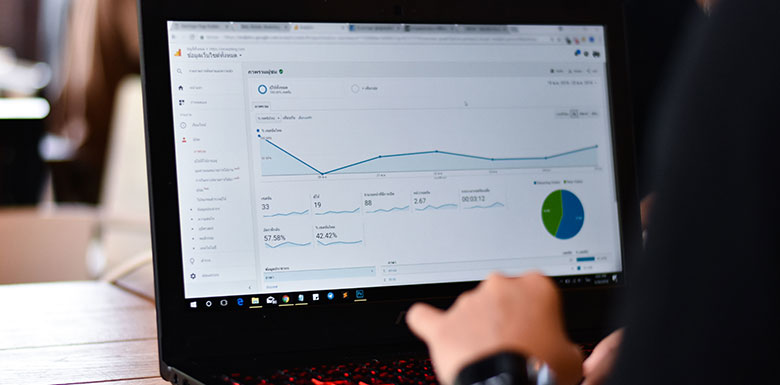SEO

Google Algorithm Updates & Penalties: Part 1 of 3
How to Avoid a Penalty for your Law Firm Website
We talk to many attorneys whose websites have been penalized by Google. This has drastic effects to their business. Organic traffic declines significantly, resulting in fewer calls and ultimately, fewer cases.
In most instances, they hired an SEO company and things seemed to be going well. Traffic to their website was increasing and their business was growing as a result. Seemingly out of nowhere, the phones stopped ringing. They have questions:
How did this happen?
Can it be fixed?
How can I prevent this from happening in the future?
In sum, it happened because the SEO tactics used on their website were either out-of-date or a direct violation of Google’s Guidelines. Recovering from this is not easy, but it can be done.
This is the first of a 3-part blog series on Google penalties and algorithm updates. In this post, we’ll cover preventative measures you can take to ensure your law firm’s website is not at risk of being penalized or affected by an algorithm update.
In subsequent blog posts, we’ll discuss how to identify Google penalties and how to recover from them.
How to Avoid a Google Penalty
1. Understand the ethics behind SEO.
As an attorney, you must adhere to strict ethical standards. SEO is similar. The most common penalty we see in law firm websites relates to unethical behaviors that are meant to manipulate search results, such as buying links or copying content from other websites.
We talk to lawyers frequently who have had their site penalized as a result of “spammy” linkbuilding tactics, which are a direct violation of Google’s guidelines.
We recommend reading through Google’s Webmaster Guidelines so you have a clear understanding of how search engine optimization works and what actions will put you at risk of a penalty.
2. Stay up-to-date on SEO trends.
At Postali, we never worry about algorithm updates. In fact, we often see our clients benefit from them. This is because we take a forward-thinking, ethical approach to our clients’ law firm SEO strategies.
Google algorithm updates are not meant to surprise you. They’re an effort to improve search results by rewarding websites that provide the best web experiences, and by penalizing those that do not.
For example, a recent algorithm update was focused on mobile user experiences. If your website does not function on a mobile device, it won’t rank highly in search results.
If you stay up-to-date on SEO trends and make a consistent effort to improve your website’s quality and overall experience, you don’t need to worry about a penalty. We recommend adding the following blogs to your weekly reading list:
• Search Engine Land
• Search Engine Round Table
• Search Engine Watch
• Search Engine Journal
3. Review your analytics regularly.
When business is going well, it’s easy to ignore your law firm website analytics. You’re busy, and as long as things are going well, you may not see the need to review a detailed SEO report.
However, it’s difficult to diagnose the effects of a Google algorithm update if you don’t have information about how your website has historically performed.
Your SEO team should be keeping a pulse on your analytics. They should be reviewing traffic, rankings and performing competitive analysis weekly. As the attorney, we recommend staying informed with monthly reporting calls where you can discuss your SEO performance.
If you are not seeing consistent growth, it may be a sign that your website needs to improve the quality of content or your backlinks before the next algorithm update happens.
4. Understand the difference between a manual penalty and algorithmic penalty.
There are two ways in which your website could suffer a penalty from Google: manual and algorithmic. It’s important to understand the difference and warning signs.
With a manual penalty, a member of Google’s Webspam team issues a penalty if your site violates Google’s guidelines. Manual penalties can vary in severity and the length of the penalty, and you will be notified via a message in Google Search Console if you receive one.
You may receive a manual penalty for many reasons, such as participating in link schemes, having low-quality or thin content on your website or “cloaking” your website content so that it’s visible to search engines but not users.
Algorithmic penalties can be more difficult to identify, as they do not come with a message. Google updates their algorithm daily, which can cause fluctuations in rankings. If you see an abnormal drop in your organic search traffic and rankings, it could be a sign of an algorithm penalty.
If your website is not mobile-friendly, for example, you may receive an algorithmic penalty which results in a loss in traffic until you address the issue.
5. Know what questions to ask your SEO team.
Whether you handle your law firm’s SEO in-house or use an agency, it’s important to understand what questions you should ask.
If you’re considering an SEO agency, ask if they’ve ever had a website penalized. Ask about their approach to linkbuilding. Ask if they comply with Google’s Guidelines.
It’s important to understand that an ethical approach to SEO will take longer to show results. If you focus your efforts on high-quality content and earning links through that content, it may take a year to see your rankings increase to the point where your website is consistently driving new business.
When an SEO provider promises fast results, it should be a red flag. SEOs who focus on quick wins generally do so by engaging in spammy tactics, which will put your website on the path to a penalty.
Interested in learning more about how to improve your law firm’s SEO strategy? Contact Postali today.




